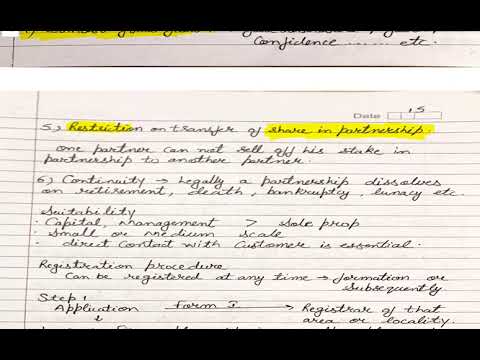
Here’s a breakdown of each accounting method’s unique pros and cons, as how to calculate lifo and fifo well as who each method is best for. We believe everyone should be able to make financial decisions with confidence. Please read our review for more information on QuickBooks Online and our ratings for other top accounting software. Choosing the right accounting method requires understanding their core differences. It’s beneficial to sole proprietorships and small businesses because, most likely, it won’t require added staff (and related expenses) to use. A financial professional will offer guidance based on the information provided and offer a no-obligation call to better understand your situation.
Get in Touch With a Financial Advisor
If you’re looking to make the move from spreadsheet accounting or are in the market for a new accounting software application, be sure to check out The Ascent’s accounting software reviews. To change accounting methods, you need to file Form single step vs multi step income statement 3115 to get approval from the IRS. That being said, the cash method usually works better for smaller businesses that don’t carry inventory.
The cash basis is also commonly used by individuals when tracking their personal financial situations. Under the accrual basis of accounting, revenue is recorded when earned and expenses are recorded when consumed. It is most commonly used by larger entities with more complex accounting systems.
Would you prefer to work with a financial professional remotely or in-person?
You also won’t have to worry about creating and posting journal entries, and you’ll how to be your authentic self in relationships only have to pay taxes on revenue that has already been received. Cash basis accounting is a good option for sole proprietors and very small businesses without employees. Learn how to handle your small business accounting and get the financial information you need to run your business successfully. Wave also offers both cash and accrual, although accrual is the default method for reporting.
Kelly Main is a Marketing Editor and Writer specializing in digital marketing, online advertising and web design and development. Before joining the team, she was a Content Producer at Fit Small Business where she served as an editor and strategist covering small business marketing content. She is a former Google Tech Entrepreneur and she holds an MSc in International Marketing from Edinburgh Napier University. Ultimately, this method may become more expensive or time-consuming, making it harder for small businesses to use. Though the cash-basis accounting technique has advantages, there are notable setbacks.
Table of Contents
It provides you and any outside parties with a much more accurate financial picture. Keep in mind that using the accrual method of accounting will require you to keep a closer eye on cash flow, which can be obscured when using accrual accounting. Keep in mind that the choice to use cash basis or accrual basis accounting will impact your business for the foreseeable future.

In cash basis accounting, transactions are recorded when cash physically moves in or out of your business. More specifically, revenue is recognized as income when you receive payment, and expenses are recognized when money is spent. Cash and accrual accounting are both methods for recording business transactions. The biggest difference between the two is when those transactions are logged. With cash basis accounting, income and expenses are recognized only when payments are made. Accrual basis accounting records income and expenses when they’re incurred, regardless of whether money has been exchanged yet.
Make sure they understand what you want to gain from your financial statements and that they aren’t basing their advice solely on your business’s tax basis. Many businesses prefer cash-basis accounting for taxes because it can make it easier to maintain enough cash to pay taxes. However, the accrual system may be better for complete accuracy regarding yearly revenue. Accrual-basis and cash-basis accounting each have their advantages and drawbacks. There are logical reasons, such as company size and budget, that might lead a business to prefer one system over the other. If you are unsure which approach is best for your business, it may be a good idea to seek professional advice to determine if your company should use cash or accrual accounting.
Cash-Basis vs Accrual Accounting FAQs
- When you leave a comment on this article, please note that if approved, it will be publicly available and visible at the bottom of the article on this blog.
- And if your business holds lots of stock (if you’re a retailer, for example) then accrual accounting is best because it’s easier to account for such assets.
- For example, Intuit’s QuickBooks Online lets you switch from cash to accrual accounting.
- Many accounting software platforms offer users the option to choose either cash or accrual basis accounting.
Cash basis accounting is reminiscent of checkbook accounting, with business owners starting with an amount of money and adding or subtracting any changes to that balance. To further complicate the situation, once you choose, and file taxes using your chosen method, you will need to request approval from the IRS to change the accounting method that your business uses. The cash method is also beneficial in terms of tracking how much cash the business actually has at any given time; all you have to do is look at your bank account balance. If you are a customer with a question about a product please visit our Help Centre where we answer customer queries about our products.
This used to be done by hand on paper, but now business owners mainly do this using bookkeeping software. The finance team issues an invoice for £3,000 and uses the date of the invoice to account for the transaction in the accounts receivable part of the accounting software. Expenses for the materials you bought to complete the job would be recorded in June when they were bought. Your customer’s invoice payment, on the other hand, wouldn’t be recorded until July, since that’s when you received and deposited the check. That timing discrepancy could make it difficult for you to determine whether that job was profitable.

